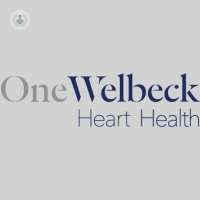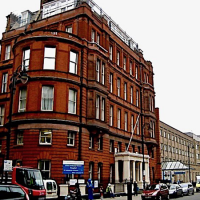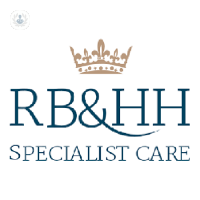What is valvular heart disease?
Valvular heart disease includes any disease that affect the valves of the heart. These pathologies affect the aortic and mitral valve on the left side and the pulmonary and tricuspid valves on the right side of the heart. If they get worse and are not treated, they can affect the flow of blood through the heart and cause serious heart problems.
Valvular heart diseases can be classified into three groups according to their severity:
- Mild valvular heart disease – a mild disorder that does not require treatment. A follow up with the cardiologist is sufficient.
- Moderate valvular heart disease – requires comprehensive follow-up and in some cases the patient may require treatment.
- Severe valvular heart disease – usually requires surgical treatment, in many cases to replace the affected valve.

What are the symptoms of valvular heart disease?
Valvular heart disease refers to conditions in which one or more of the heart's valves do not function properly. The symptoms of valvular heart disease can vary depending on the type and severity of the condition, as well as which valve is affected. The four main valves in the heart are the aortic valve, pulmonary valve, mitral valve, and tricuspid valve. Here are some common symptoms associated with valvular heart disease:
Chest pain or discomfort: Patients with valvular heart disease may experience chest pain or discomfort, especially during physical activity or when the heart is working harder.
Shortness of breath: Dyspnea, or shortness of breath, is a common symptom. It can occur with exertion or even at rest, depending on the severity of the valve disease.
Fatigue: People with valvular heart disease may feel unusually tired or fatigued, even with minimal physical activity.
Palpitations: Irregular heartbeats, skipped beats, or a feeling of rapid or forceful heartbeats (palpitations) can be a symptom.
Swelling (Edema): Fluid retention in the body, leading to swelling in the ankles, feet, legs, or abdomen, may occur.
Dizziness or fainting: Some individuals may experience light-headedness, dizziness, or fainting episodes, particularly during physical activity or when changing positions.
Heart murmurs: Doctors often detect valvular heart disease through the presence of abnormal heart sounds (murmurs) during a physical examination.
Chest discomfort: This can include a feeling of pressure or tightness in the chest.
Rapid weight gain: Sudden weight gain can be a sign of fluid retention associated with valvular heart disease.
Causes of valvular heart disease
Valvular heart disease can be congenital or acquired. The main causes include:
- Congenital heart disease – the patient was born with an abnormal valve.
- Rheumatic fever
- Cardiomyopathy – this disease of the heart muscle can damage the valves.
- Heart attack – these can leave damage to the heart muscle and valves.
- Previous infection with endocarditis
- Ageing
Can valvular heart disease be prevented?
Many of valvular heart diseases cannot be avoided, but there are measures that can be taken to minimise the risk, such as regular heart check-ups, maintaining a healthy diet and doing regular physical activity to keep your heart healthy.
Treatment of valvular heart disease
The treatment will depend on the type of valve disease and the degree of severity. Many cases can be treated with medication, while more severe cases may require surgery to repair or replace the valve.
03-20-2014 09-20-2023Valvular heart disease
What is valvular heart disease?
Valvular heart disease includes any disease that affect the valves of the heart. These pathologies affect the aortic and mitral valve on the left side and the pulmonary and tricuspid valves on the right side of the heart. If they get worse and are not treated, they can affect the flow of blood through the heart and cause serious heart problems.
Valvular heart diseases can be classified into three groups according to their severity:
- Mild valvular heart disease – a mild disorder that does not require treatment. A follow up with the cardiologist is sufficient.
- Moderate valvular heart disease – requires comprehensive follow-up and in some cases the patient may require treatment.
- Severe valvular heart disease – usually requires surgical treatment, in many cases to replace the affected valve.

What are the symptoms of valvular heart disease?
Valvular heart disease refers to conditions in which one or more of the heart's valves do not function properly. The symptoms of valvular heart disease can vary depending on the type and severity of the condition, as well as which valve is affected. The four main valves in the heart are the aortic valve, pulmonary valve, mitral valve, and tricuspid valve. Here are some common symptoms associated with valvular heart disease:
Chest pain or discomfort: Patients with valvular heart disease may experience chest pain or discomfort, especially during physical activity or when the heart is working harder.
Shortness of breath: Dyspnea, or shortness of breath, is a common symptom. It can occur with exertion or even at rest, depending on the severity of the valve disease.
Fatigue: People with valvular heart disease may feel unusually tired or fatigued, even with minimal physical activity.
Palpitations: Irregular heartbeats, skipped beats, or a feeling of rapid or forceful heartbeats (palpitations) can be a symptom.
Swelling (Edema): Fluid retention in the body, leading to swelling in the ankles, feet, legs, or abdomen, may occur.
Dizziness or fainting: Some individuals may experience light-headedness, dizziness, or fainting episodes, particularly during physical activity or when changing positions.
Heart murmurs: Doctors often detect valvular heart disease through the presence of abnormal heart sounds (murmurs) during a physical examination.
Chest discomfort: This can include a feeling of pressure or tightness in the chest.
Rapid weight gain: Sudden weight gain can be a sign of fluid retention associated with valvular heart disease.
Causes of valvular heart disease
Valvular heart disease can be congenital or acquired. The main causes include:
- Congenital heart disease – the patient was born with an abnormal valve.
- Rheumatic fever
- Cardiomyopathy – this disease of the heart muscle can damage the valves.
- Heart attack – these can leave damage to the heart muscle and valves.
- Previous infection with endocarditis
- Ageing
Can valvular heart disease be prevented?
Many of valvular heart diseases cannot be avoided, but there are measures that can be taken to minimise the risk, such as regular heart check-ups, maintaining a healthy diet and doing regular physical activity to keep your heart healthy.
Treatment of valvular heart disease
The treatment will depend on the type of valve disease and the degree of severity. Many cases can be treated with medication, while more severe cases may require surgery to repair or replace the valve.
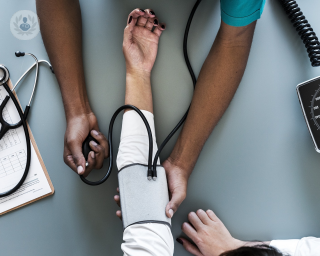

Mitral valve regurgitation: what exactly is it?
By Mr Inderpaul Birdi
2024-11-21
Mitral regurgitation is when the heart’s mitral valve doesn't close well enough during contractions, causing blood to leak and flow back into the heart. Blood is then incorrectly sent back towards the left atrium, causing various problems. Mr Inderpaul Birdi, a leading cardiothoracic surgeon in London, explains this condition and how it can be treated. See more
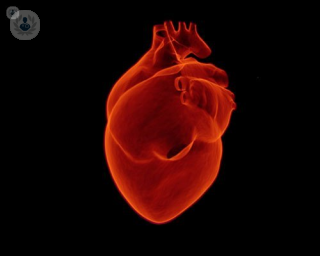

Heart valve disease explained: A patient's handbook
By Dr Ananth Kidambi
2024-11-20
Heart valve disease is a condition that affects the valves of the heart, which regulate blood flow in and out of the heart chambers. Leading consultant cardiologist Dr Ananth Kidambi provides a clear understanding of what heart valve disease entails, its symptoms, causes, and the treatment options available. See more
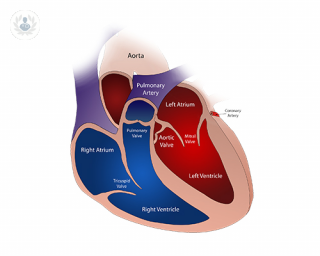

An expert's guide to valvular heart disease
By Dr Mick Ozkor
2024-11-19
Dr Mick Ozkor is a leading London-based consultant cardiologist. In his latest article, Dr Ozkor provides expert insight into valvular heart disease, including its causes, diagnosis and how to prevent it. See more


Heart check – what does it involve and should I be having one?
By Dr Nicholas Robinson
2024-11-13
A heart check-up is exactly that – a series of tests and examinations to assess your risk for heart disease. Whilst not everyone needs to have a heart check, there are certain groups of people who have a higher risk of developing heart problems. Dr Nicholas Robinson, a cardiologist, explains who these risk groups are and what a heart check involves. See more
Experts in Valvular heart disease
-
Professor Rajan Sharma
CardiologyExpert in:
- Echocardiogram
- Coronary heart disease
- Valvular heart disease
- Heart failure
- Hypertension (high blood pressure)
- Palpitations
-
Mr Masood Khan
CardiologyExpert in:
- Valvular heart disease
- Echocardiogram
- Chest pain
- Hypertension (high blood pressure)
- Heart failure
- Pacemaker
-
Dr Andrew Deaner
CardiologyExpert in:
- Cardiovascular disease
- Coronary angioplasty
- Echocardiogram
- Pacemaker
- Palpitations
- Heart failure
-
Dr Jonathan Byrne
CardiologyExpert in:
- Coronary heart disease
- Arrhythmia
- Hypertension (high blood pressure)
- Valvular heart disease
- Angina
- Coronary angioplasty
-
Professor Gerald Carr-White
CardiologyExpert in:
- Heart failure
- Dilated cardiomyopathy
- Hypertrophic cardiomyopathy
- Hereditary diseases
- Chest pain
- Valvular heart disease
- See all

OneWelbeck Heart Health
OneWelbeck Heart Health
Floor 3, 1 Welbeck St, London, W1G 0AR
No existe teléfono en el centro.
By using the telephone number provided by TOP DOCTORS, you automatically agree to let us use your phone number for statistical and commercial purposes. For further information, read our Privacy Policy
Top Doctors

Great Ormond Street Hospital
Great Ormond Street Hospital
Great Ormond Street. WC1N 3JH
No existe teléfono en el centro.
By using the telephone number provided by TOP DOCTORS, you automatically agree to let us use your phone number for statistical and commercial purposes. For further information, read our Privacy Policy
Top Doctors

Royal Brompton and Harefield Hospitals
Royal Brompton and Harefield Hospitals
Royal Brompton Hospital, Sydney Street, Chelsea, London. SW3 6NP
No existe teléfono en el centro.
By using the telephone number provided by TOP DOCTORS, you automatically agree to let us use your phone number for statistical and commercial purposes. For further information, read our Privacy Policy
Top Doctors
-
OneWelbeck Heart Health
Floor 3, 1 Welbeck St, London, W1G 0AR, W1G Marylebone LondonExpert in:
- Clinical analysis
- Arrhythmia
- Palpitations
-
Great Ormond Street Hospital
Great Ormond Street. WC1N 3JH, Central LondonExpert in:
- Cancer
- Paediatric neurosurgery
- Paediatrics
-
Royal Brompton and Harefield Hospitals
Royal Brompton Hospital, Sydney Street, Chelsea, London. SW3 6NP, Central LondonExpert in:
- Arrhythmia
- Cardiology
- Diagnostic Imaging
- Respiratory diseases
- Breathlessness
- Hypertension
- See all
- Most viewed diseases, medical tests, and treatments
- Autoimmune diseases
- Joint pain
- Nutrition
- Genetic testing
- Abdominal pain
- Minimal access surgery (keyhole surgery)
- Vaginal cytology
- Heart murmur in children
- Aortic aneurysms
- Parkinson's disease






